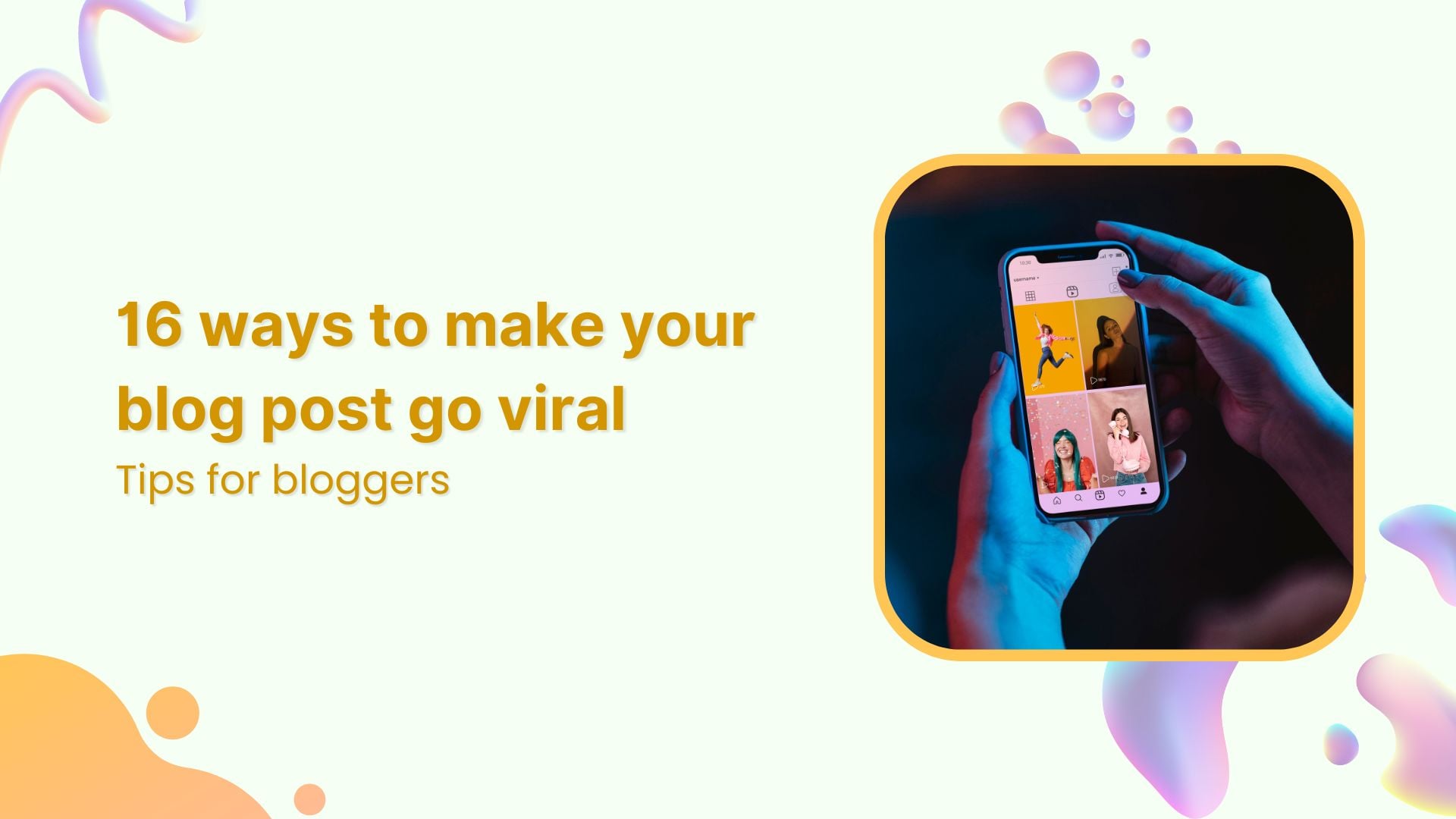Bulk-generate & schedule posts in seconds with Smart Scheduling. Try now!
ChatGPT vs Google Bard: Which Is Better?
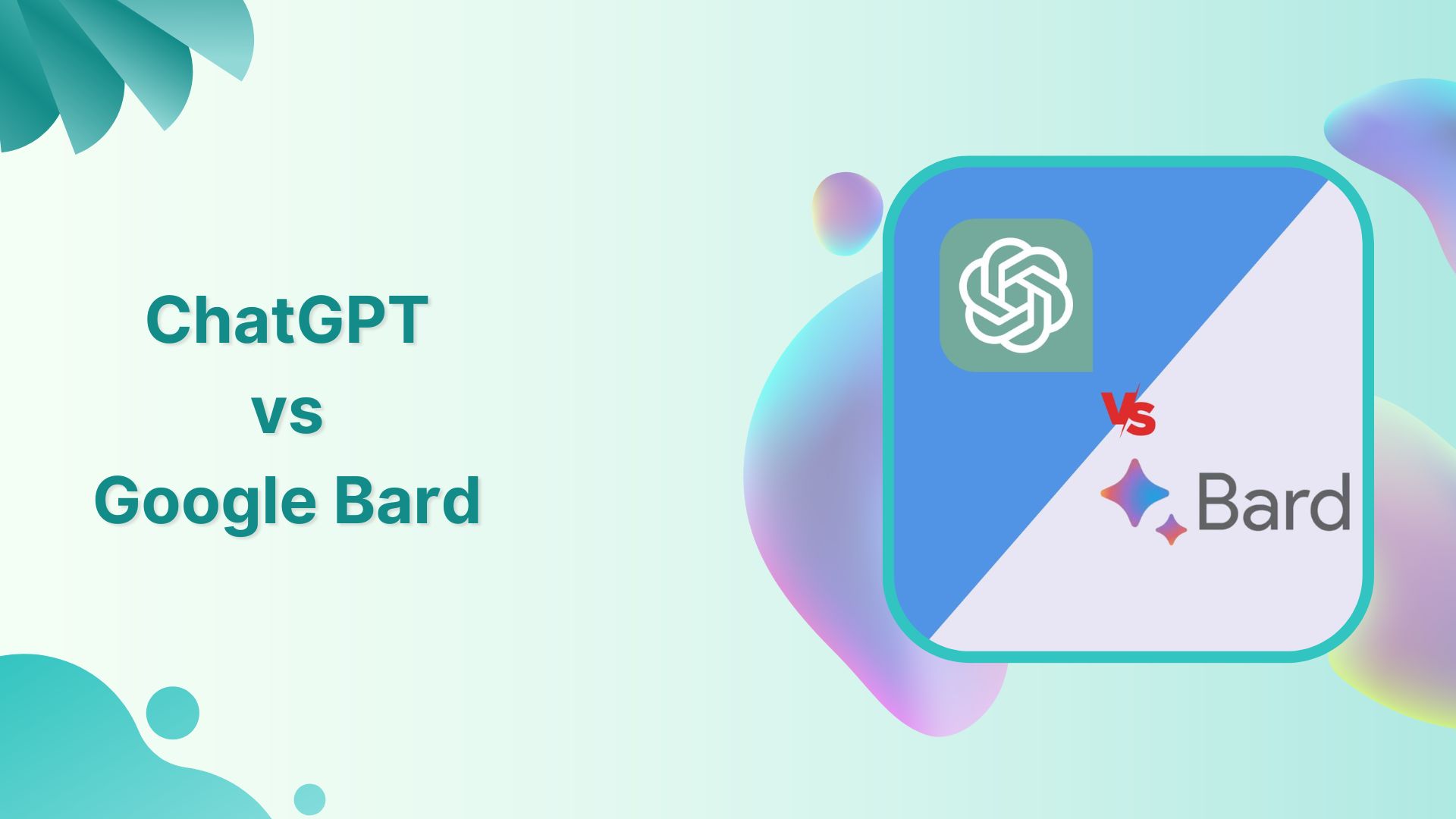
Unless you have been on an internet hiatus for the past six months, we’re sure you must have heard of ChatGPT.
After all, as soon as the curtains opened up to reveal this AI tool in November 2022, it became the talk of the town.
With ChatGPT unleashed, Google knew it had to strike back with a competitor – and it did. Earlier this year in February, we had another generative AI tooI: Google Bard. But wait – which of the two software wins the ChatGPT vs Google Bard battle?
To answer this, you can do either of two things: spend hours testing out the two or dive into this piece where we discuss what ChatGPT and Google Bard are, how they differ, and which one is better.
Let’s get started.
Read More: How To Become a Pro at AI-Generated Content
What is ChatGPT?
ChatGPT is an artificial intelligence language model that responds to the prompts entered into it. It is powered by OpenAI and uses its own GPT-3.5 language model.
What makes this tool so unique is that it engages in a back-and-forth conversation with the user in an almost human-like manner.
Using this chatbot is simple: enter your question/prompt into its message bar and it will reply to you in text.
This way, it’s like a simplified version of a search engine. However, you don’t have to enter keywords and nor do you get countless search results and pages to sift through. Instead, you can just start a conversation and it will give you clear, concise, and coherent responses.
You can smoothly carry on the conversation and ChatGPT will respond while sticking to the context and flow.
Interestingly, while many may think it simply pulls responses from external sources, this isn’t the case. In fact, ChatGPT has been extensively trained on text data driven from multiple sources.
But even though its responses are natural, it’s still a bot. Meaning: it has limitations. For instance, sometimes its answers are inaccurate or nonsensical. Other times, it may overuse some phrases in its responses.
Not to mention, while the AI generator can provide knowledge on various subjects, its information is limited to September 2021. As the language model hasn’t had a knowledge update since then, it doesn’t give accurate answers to questions regarding more recent events.
Overall, ChatGPT is very impressive as it can give creative responses and write in different conversational styles too.
What is Google Bard?
Google Bard is also a language assistant that relies on machine learning to engage in conversational and informative texting with its users.
The central idea is the same: enter a text prompt into the query bar and continue chatting with an intelligent bot.
As you can guess from its full name, Bard is from Google. It was launched in February 2023 which means it is still fairly new with limited availability.
Unlike its counterpart ChatGPT, Bard uses Google’s language model laMDA and has more recent data built into it. Meaning: this software gives you more up-to-date answers.
Rumors surrounding its launch claimed that Bard was trained on ChatGPT’s responses, but Google denied all such accusations. In fact, you can’t even say that it’s a copycat software because there’s more to Bard than texting.
You see, users can use their microphone to enter voice prompts into Bard which makes it much easier for those who want a hands-free experience. You cannot find this option within its competitor.
Furthermore, Bard also has a ‘Google It’ button which enables you to continue your search outside of Bard.
Safe to say, Bard comes with its own unique set of features that set it apart from ChatGPT despite being quite similar to it.
Also Explore: Leading AI Social Media Content Creation Tools of 2023
ChatGPT Vs. Google Bard: 10 Main Differences
The recent chatbots from OpenAI and Google may have the same focal idea – to assist with research and writing – but both have some key differences.
Wondering which is the better tool in the ChatGPT vs Google Bard head-to-head? Here are 10 major differences between the two so you can see which would be a better fit for you:
1. Both use difference sources of data
Apart from a language difference between the two as mentioned above, both ChatGPT and Bard also have different data sources.
Where ChatGPT has been pre-trained on data, Bard uses Infiniset. Sure, both are trained on data from Common Crawl, Wikipedia, articles and books. But Bard has an upper hand here: it also has real-time access to Google.
In comparison to this, ChatGPT has limited knowledge: it is not aware of events or information ahead of September 2021.
Proof: we asked ChatGPT about Bard, and of course, it didn’t know what Bard is:

We also tested Bard’s capabilities by asking it how it differed from ChatGPT. Despite the ChatGPT vs Google Bard topic being a hot one these days, the AI assistant failed to give a knowledgeable reply. See for yourself:

But wait – there’s more. On regenerating the draft, an option given on Bard’s responses’ top-right corner, it gave us the correct answer.

So, while it may not have immediately impressed us, it eventually did give us an up-to-date response.
2. ChatGPT has a paid version too
Though you can access ChatGPT 3.5 for free, to get its more updated version you need to become a paying user
You can update to the Plus version easily as the option is given on the main conversation page of the chatbot.
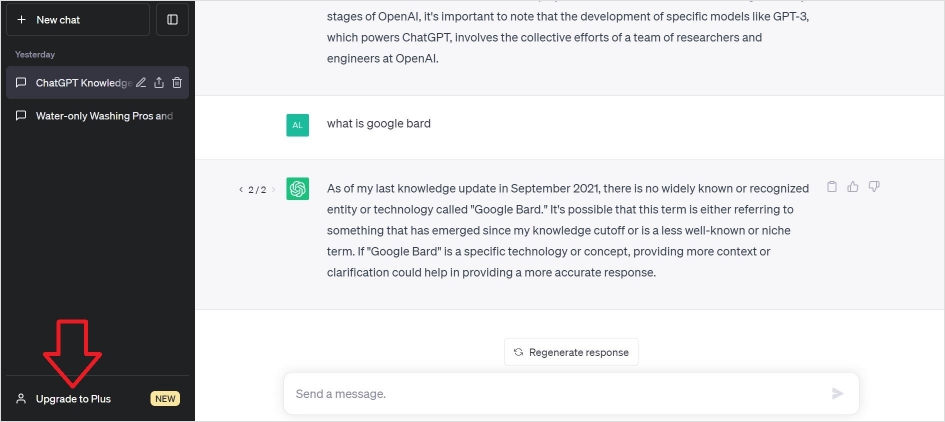
ChatGPT Plus is more advanced as it has been trained on GPT-4 or Generative Pre-Training Transformer 4.
On the other hand, you can access Google Bard for free. And it’s free version already is more advanced, in terms of access to knowledge, than the basic version of ChatGPT.
However, before you go all pro-Bard, know this tidbit: Google’s AI assistant is still in its ‘experiment’ phase. While you can access it, you’re technically still on the waitlist.
On the other hand, there is no waitlist when it comes to Bard’s predecessor, ChatGPT.
3. You can only sign-up for Bard using your Google account
In this day and age, most of us own a Google account. But in case you don’t, you’ll need one to sign up for Bard.
ChatGPT, on the flip side, can provide access to you on signing up with any email address – Outlook, Live, Gmail or the like.
4. Bard’s responses come with way more options
You can regenerate a response if you don’t like it with both the bots. However, only one of them saves the previous drafts. And that is Google Bard.
See for yourself:

This isn’t all – Bard also enables you to edit your questions after you’ve asked them. See the ‘pencil’ icon at the right corner of your question? Click on it to edit your question.

Additionally, Bard lets you take your search further by giving you an option to Google it and even lets you share its drafts via Gmail or export them to the Google workplace.
ChatGPT doesn’t give you these additional options. It only gives you the option of submitting feedback and that of copying its answers.
5. ChatGPT offers more integrations
Don’t be quick to jump to conclusions favoring Bard just yet. Because unlike ChatGPT, it doesn’t offer vast integrations. At least not at the time of writing this.
Where ChatGPT can integrate with other applications, Bard cannot. In fact, Microsoft has already integrated ChatGPT into its Bing and Edge search engines and other Microsoft Office products.
Bard may follow suit in future but for now it is a standalone tool. It is, however, expected that Google will open up Bard to third-party developers or integrate it with its search engine.
6. ChatGPT stores your previous conversations
Another plus point of ChatGPT is that it stores your conversations in a handy manner. You can see all the conversations you’ve had with it in its side panel on the left.

You can also easily share the link to your ChatGPT conversations with your teammates, making it super easy to collaborate.
The person you share your ChatGPT chat with can not only read the back and forth, but also continue on from your last message.
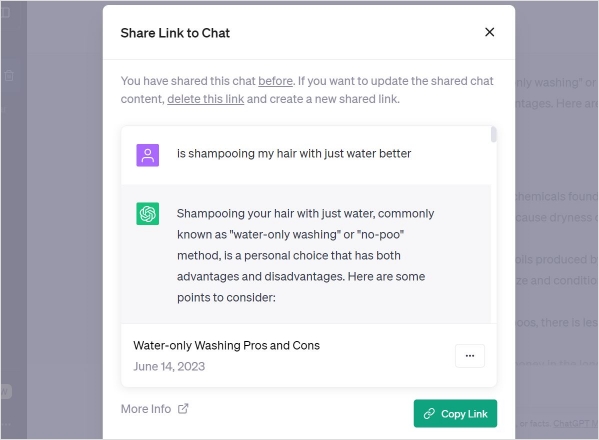
If you want to delete a conversation you’ve had with ChatGPT, you can do that too by clicking the trash box icon right beside the option to share the chat’s link in the side panel.
Moreover, you can also rename conversations you’ve had with ChatGPT and start a New chat with the AI tool by clicking on the option to do so at the top of the side panel.
This way, all your ChatGPT conversations are organized properly.
Bard, on the other hand, doesn’t store conversations in the same way.
Instead, to access your previous prompts, you’ve to click on Bard Activity in the chatbot’s left panel. This makes it less convenient to view or delete older conversations.

What’s more, while you can view your past prompts on Bard, you can’t really view the bot’s responses or pick up the chat from where you left it off.
There is one sort of good thing about Bard’s chat storage feature though: you can turn off Bard Activity as well if you’re not interested in saving past chats.
7. Both have different interfaces
Where Bard has a cleaner interface, ChatGPT has a more user-friendly interface.
Why do we say that? For one, in ChatGPT past chats are more accessible. Secondly, when you reopen your ChatGPT tab, you can continue on with the conversation you were last having with it.
Bard, on the contrary, doesn’t pull up the chat where you left it off. Instead, it automatically resets.
But wait – admittedly, Bard’s chats are more readable with better spacing and a font that’s easier on the eyes. In comparison, ChatGPT’s interface is quite outdated and cluttered.
Talking about the chatbots’ themes, both offer light and dark ones, so they get equal points in this regard.
At the end of the day, the answer to which interface is better depends on your personal preferences.
8. Google Bard responds better to emotional questions
As scary as it is to say this, Bard has the ability to tackle emotional questions better than ChatGPT.
To test out the AI assistants’ responses to emotional prompts, we asked both bots if they were jealous of other AI tools.
Their responses made it clear that Bard had a more intelligible approach to such prompts.
Where ChatGPT had a straightforward response, Bard had a more human one. See for yourself — here’s ChatGPT’s response:

9. ChatGPT is better at summarizing
While testing out the capabilities of both the chatbots, we also asked the AI tools to summarize a book.
The clear winner? ChatGPT. It gave us a straightforward and brief summary, whereas, Bard had a rather lengthy summary.
However, in one way both the tools failed to give an accurate answer: they gave more of a synopsis for the book rather than summarizing it.
Here’s a look at their responses:
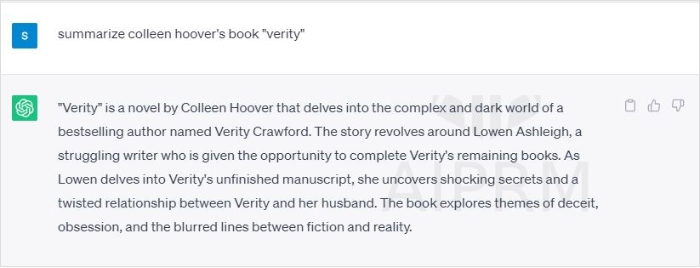
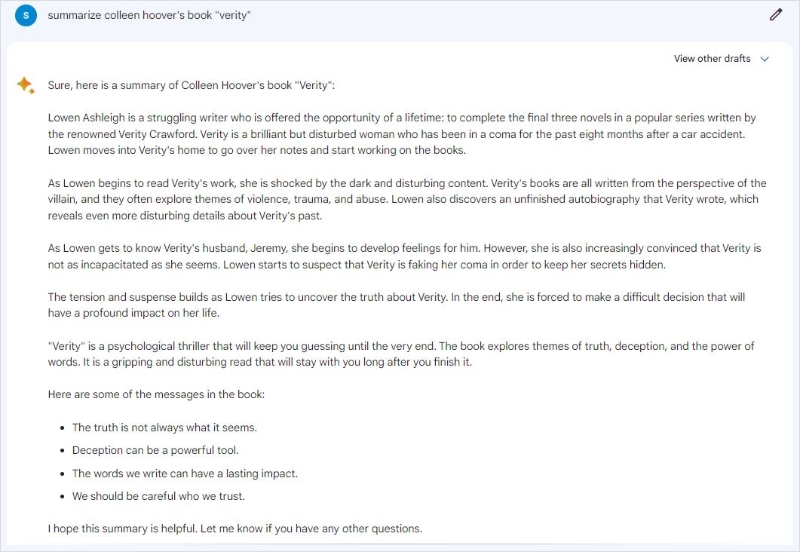
10. ChatGPT’s free version can be sluggish
Since Bard has access to Google, it is quick with its responses. However, ChatGPT’s basic version can lag behind sometimes when it comes to its speed.
While working with ChatGPT-3.5, we noticed it was pretty slow with its answers a couple of times.
Of course this can be a turn off, but thankfully, ChatGPT Plus makes up for what its previous version lacks.
Not only is it faster but it also gives more informative responses. Even more so than Bard which is connected to Google.
Which is Better: ChatGPT or Google Bard?
To reiterate, ChatGPT and Google Bard both are AI assistants that use different language models but do the same thing: help with research and generating content.
A deep dive into the working of both reveals that while similar, there are many differing features between the two. For instance, where ChatGPT makes past conversations with it more accessible, Google Bard saves multiple drafts to the same questions and allows you to further your research with a Google It button.
Moreover, While Bard does have more features, a better interface, and real-time access to Google, ChatGPT is more popular and often more knowledgeable, especially with its paid version.
To test and compare the extent of their capabilities, we also asked the chatbots a couple of questions. Here are the key takeaways we observed:
- ChatGPT and Google Bard are both decent at translating phrases
- Google Bard offers more readable responses
- ChatGPT is better at summarizing
- Bard is better at handling emotional prompts
- Both the AI tools are quite creative and informative
At the end of the day how helpful these bots prove to be to you depends on the prompts you give to them.
Since artificial intelligence tools are always developing and both ChatGPT and Bard are still in their early stages only time will tell which will turn out to be the clear winner in ChatGPT vs. Google Bard battle.
FAQs
- Is ChatGPT better than Google Bard?
ChatGPT and Google Bard are both chatbots that generate informative and conversational text in response to the prompts you enter into them.
While ChatGPT is still thought to be more helpful than Bard, Google’s AI software has real-time access to its search engine. Meanwhile ChatGPT’s knowledge is limited to September 2021. However, ChatGPT Plus makes up for what the basic version lacks in speed and information, proving to be the better AI assistant so far.
- Which AI is better than ChatGPT?
While still relatively new, Google Bard is giving tough competition to ChatGPT. However, there are many ways in which Google Bard wins points over ChatGPT. For one, Google’s AI assistant has a better interface and produces more readable responses. Secondly, it has the option of Googling your search to expand it and also saves additional drafts that are regenerated. Finally, Bard has real-time access to data which means it has access to more recent information than the free version of ChatGPT does.
- Is ChatGPT better than Google?
ChatGPT is better than Google’s search engine in many ways. For one, it has a more conversational tone and often gives original responses to detailed prompts. Not to mention, with your questions answered directly, ChatGPT cuts out the need for sifting through multiple search results and pages, helping you save time and effort.
- Is Bard powered by ChatGPT?
Bard is powered by Google whereas ChatGPT is powered by OpenAI. Both the applications also use different language models. ChatGPT uses its own language GPT-3.5 and Bard uses Google’s language laMDA. Where Bard is trained on Infiniset and has real-time access to Google, ChatGPT has been pre-trained on multiple data sources.
Recommended for you
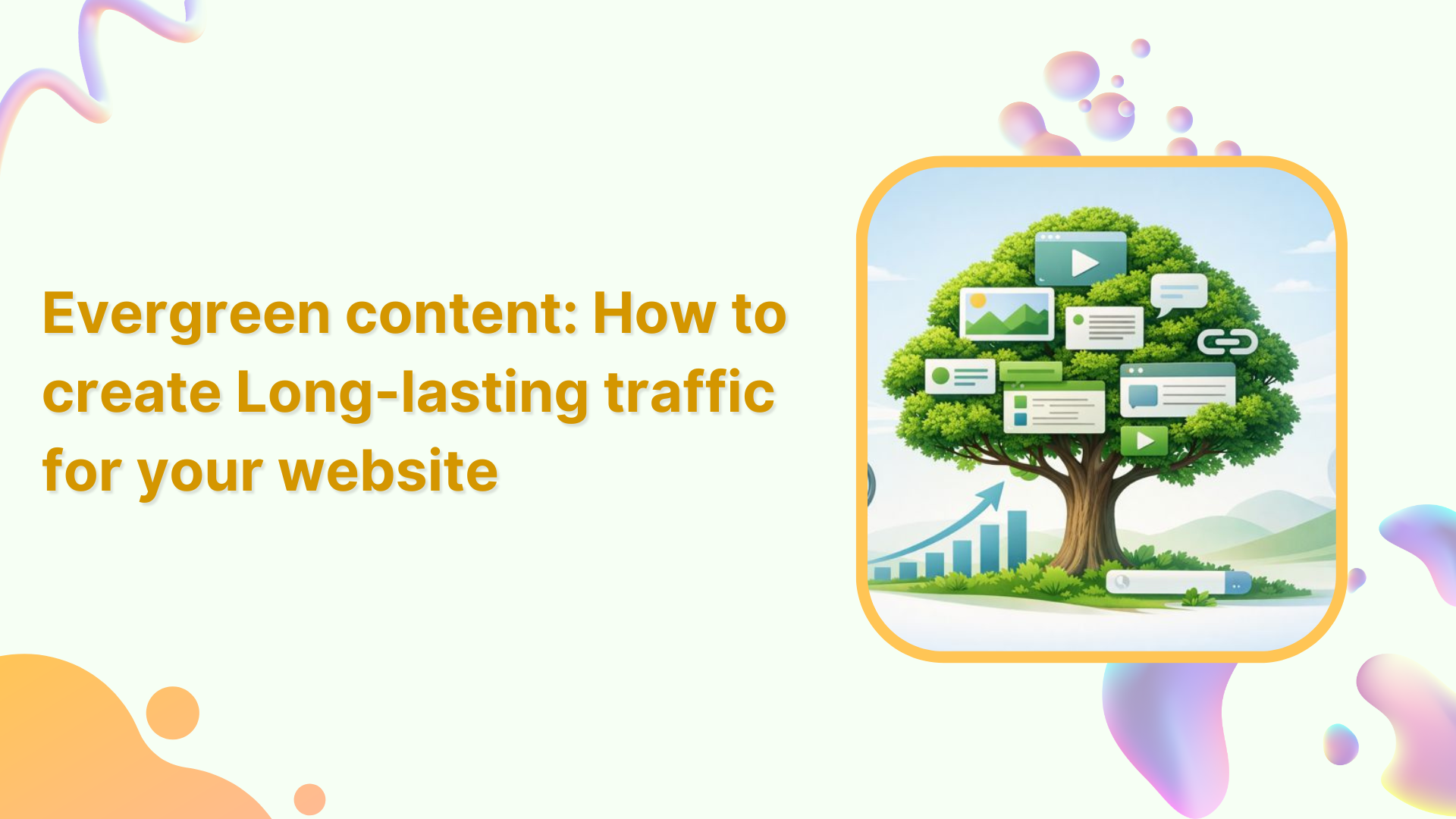
Evergreen content: How to create Long-lasting traffic for your website
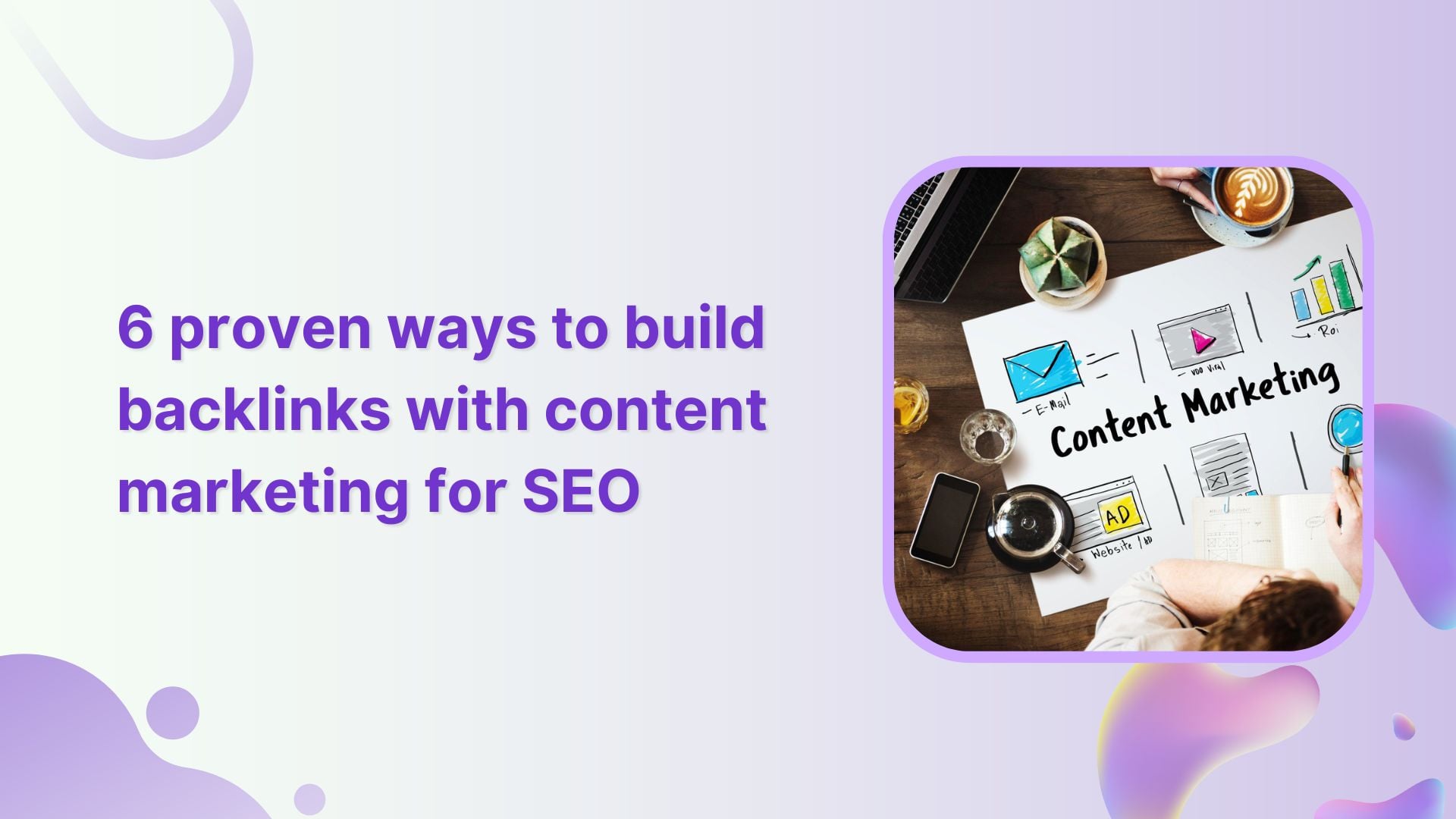
6 proven ways to build backlinks with content marketing for SEO


Powerful social media management software
14-day free trial - No credit card required.
